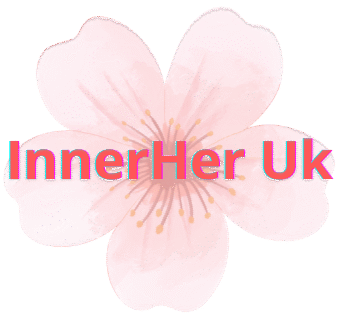As women journey through menopause, they often face more than just the end of their reproductive years. Menopause hair loss and anxiety are two intertwined issues that can lead to feelings of inadequacy and frustration. Many women in their 30s and beyond find themselves dealing with sudden changes that impact their self-esteem and overall well-being. Hormonal fluctuations can wreak havoc not only on hair health but also on emotional stability. This blog explores the intricate relationship between hormones, hair loss, and anxiety, shedding light on how to navigate these challenges.
Understanding Hormonal Changes During Menopause
Menopause is a natural phase of life that many women face, typically around their late 40s to early 50s. During this time, the body undergoes significant hormonal changes, particularly a decrease in estrogen and progesterone levels. These changes can have profound effects on various aspects of health, including hair. Hair loss and thinning often become noticeable during this period as a direct consequence of hormonal imbalances.
Estrogen plays a vital role in the hair growth cycle. It helps in the maintenance of hair density, promoting the growth phase of hair and preventing excessive shedding. As hormone levels fluctuate, women may experience an increase in androgen levels, which can lead to hair follicles shrinking and hair becoming finer over time.
In understanding these hormonal changes, it’s crucial to recognize that they influence not only physical appearance but also emotional well-being. Many women experience feelings of loss and frustration as they notice changes in their hair. Acknowledging these changes as a part of the natural aging process can empower women to take proactive steps toward maintaining their hair health.
The Link Between Anxiety and Hair Health
Anxiety can profoundly impact hair health. When experiencing stress, whether it’s related to hormonal changes or day-to-day pressures, the body reacts in various ways. This includes changes in blood circulation and nutrient distribution, which can affect hair follicles.
Stress activates the body’s fight-or-flight response, releasing hormones such as adrenaline and cortisol. While these hormones are essential for short-term responses, prolonged exposure can lead to chronic conditions and significant hair loss. Many women notice that they lose hair during particularly stressful periods, making it a vicious cycle: stress leads to hair loss, which in turn can cause more anxiety.
Identifying the root causes of anxiety is vital. Many women find relief through mindfulness practices, therapy, or even engaging in hobbies that bring joy. By addressing anxiety, women can also create a positive impact on their hair health.
Common Symptoms of Menopause You Should Know
Menopause comes with a range of symptoms that can vary from woman to woman. Apart from hair loss, consider these common signs of menopause that may also impact overall quality of life:
- Hot Flashes: Sudden feelings of heat, often accompanied by sweating.
- Night Sweats: Disruptive overheating during the night leading to sleep disturbances.
- Weight Gain: Many women notice changes in body weight distribution.
- Mood Swings: Emotional fluctuations that can contribute to anxiety or depression.
- Fatigue: A feeling of persistent tiredness can accompany menopause.
Understanding these symptoms can better prepare women for what to expect. Having a plan in place for managing these changes can lessen their impact.
How Stress Affects Hair Growth
As previously mentioned, stress is a significant factor affecting hair health. When the body is under stress, hair follicles can enter a resting phase, leading to increased shedding. This condition, known as telogen effluvium, is often reversible once the stressor is managed.
Furthermore, chronic stress can result in a condition called alopecia areata, where hair falls out in patches. This psychological and physiological impact can be distressing, as losing hair often connects to self-image and confidence.
To combat stress and its effects on hair, women are encouraged to explore relaxation techniques. Whether through yoga, meditation, or spending time in nature, finding a moment of peace can greatly aid in reducing stress levels.
Tips to Maintain Healthy Hair During Menopause
Maintaining healthy hair during menopause involves a holistic approach that incorporates both physical care and emotional well-being. Here are some practical tips:
- Gentle Hair Care: Use sulfate-free shampoos and conditioners to avoid stripping natural oils.
- Avoid Heat Styling: Limit the use of heat tools to prevent further damage.
- Regular Trims: Keeping your hair trimmed can improve its appearance and reduce split ends.
- Hydration: Drink plenty of water and use hydrating hair masks to keep hair moisturized.
- Scalp Care: Massaging the scalp can promote circulation and potentially enhance hair growth.
Additionally, embracing a supportive community, whether through friends or online forums, can provide encouragement and share advice during this transitional phase.
Coping with Anxiety: Techniques and Strategies
It’s essential to develop effective coping strategies for dealing with anxiety, especially during menopause. Here are some techniques that many find useful:
- Mindfulness Meditation: Engaging in mindfulness can help ground you in the present moment.
- Breathing Exercises: Simple deep breathing can calm the nervous system almost instantly.
- Physical Activity: Regular exercise releases endorphins, promoting overall well-being.
- Journaling: Writing down thoughts and feelings can provide clarity and relief.
- Professional Support: Therapy can be incredibly beneficial in navigating anxiety.
Adopting these strategies can help create a serene mindset, which not only aids in handling anxiety but also supports hair health during menopause.
The Role of Nutrition in Hair Health
Nutrition plays a significant role in maintaining healthy hair, particularly during menopause. Including key nutrients in the diet can support hair follicles and promote growth:
- Protein: Essential for hair structure; include lean meats, legumes, and dairy.
- Omega-3 Fatty Acids: Found in fish and flaxseed, these help nourish hair.
- Vitamins: Vitamin E, D, and B-complex vitamins contribute to healthy hair.
- Minerals: Iron and zinc are critical for hair growth and prevention of hair loss.
- Hydration: Drinking enough water is vital for overall health, including hair health.
By making informed dietary choices, women can positively impact their hair health during menopause.
Seeking Support: Why Community Matters
Going through menopause can feel isolating, but seeking support can make a world of difference. Connecting with others who share similar experiences can provide comfort, wisdom, and practical tips. Support groups, whether in-person or online, offer a safe space to share feelings and experiences and can lead to meaningful friendships.
Listening to others’ stories and learning from their journeys can empower women to navigate their own paths with confidence. There are numerous online communities and resources dedicated to menopause support, making it easier than ever to seek out connection and help.
Alternative Remedies for Menopause Symptoms
Many women explore alternative remedies to alleviate menopause symptoms and improve hair health. Some popular options include:
- Herbal Supplements: Herbal remedies like black cohosh and evening primrose oil have been suggested for managing menopause symptoms.
- Acupuncture: This ancient practice may help relieve stress and improve overall well-being.
- Aromatherapy: Essential oils like lavender can promote relaxation and reduce anxiety.
- Yoga: Regular yoga practice can enhance flexibility, reduce stress, and improve mental clarity.
Before trying any remedies, it’s essential to consult a healthcare provider to ensure they are safe and suitable.
Embracing Change: A Positive Approach to Aging
While menopause comes with challenges, it also offers an opportunity for growth and self-discovery. Embracing the changes that come with aging can cultivate a sense of empowerment. Rather than focusing on what is lost, many women find strength in celebrating newfound experiences, wisdom, and confidence.
By connecting with oneself spiritually, physically, and emotionally, menopause can be viewed as a transformative phase rather than a hurdle. Celebrating the beauty of aging can ignite a new passion for life.
As you navigate your journey through menopause, remember that it’s possible to improve symptoms and regain control. Many women have successfully found balance and healing through simple, manageable changes. You’re not alone on this journey!
Curious about how other women are tackling these challenges without resorting to heavy medications? See how many women are resolving this without heavy medications.







